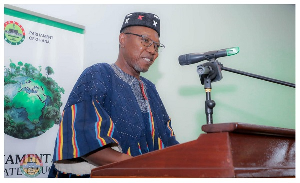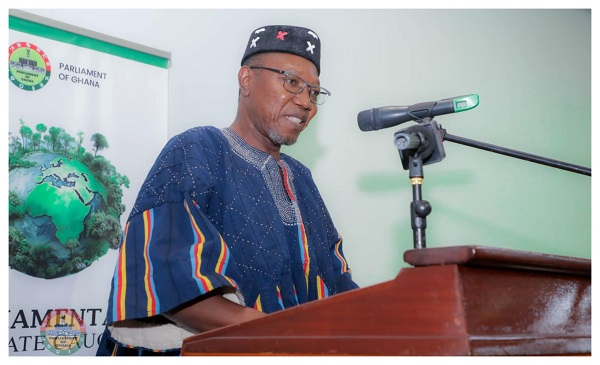 Dr Clement Abas Apaak, Deputy Minister of Education
Dr Clement Abas Apaak, Deputy Minister of Education
Ghana is reforming its education curriculum to meet current global trends and drive economic growth, Deputy Minister of Education, Dr Clement Abas Apaak, has told participants at Japan Expo 2025.
Delivering remarks at the exhibition, the deputy minister revealed that the government is building a strong foundation on which Technical, Vocational Education and Training (TVET), as well as Science, Technology, Engineering and Mathematics (STEM), would flourish.
He observed that the government’s commitment was rooted in Sustainable Development Goal 4, which is focused on ensuring inclusive and equitable quality education and promoting lifelong learning opportunities for all.
“Our government, the NDC government, recognizes that STEM and TVET are essential to driving innovation, fostering economic growth, and addressing the complex challenges of the 24th century,” Dr Apaak said on Friday July 25, 2025.
He continued: “Our agenda is built on several key pillars, with a strong emphasis on transforming TVET to meet the demands of the rapidly evolving global economy.
“Within this context, we are strategically transforming and reforming our curriculum. We are initiating what we call the SMART curriculum, and this is to integrate seamlessly STEM, coding, and digital literacy into the basic school system.”
Dr Apaak said the study of STEM programmes at the basic level will enable learners to acquaint themselves with key concepts of the field during their formative years.
He noted that a transformation of the curriculum will reap benefits beyond academics, equipping students with employable and entrepreneurial skills.
Discussing investments made in TVET, the deputy minister said the government wanted to make the programme a key learning alternative for Ghanaian students and not area reserved for academically weak learners.
He explained that it was why the administration had facilitated the integration of AI tools to align vocational learning with the changing demands of industries.
Itemizing a number of interventions, he mentioned initiatives such as One Tech, One Teacher, One Laptop Initiative, Smart Schools Project, I-Campus Ghana, and the Learning Management System, all of which are part of strategic efforts to transform TVET in Ghana.
Dr Apaak further highlighted ongoing plans to expand Information Communication and Technology (ICT) infrastructure in order that it can be leveraged for quality STEM education.
